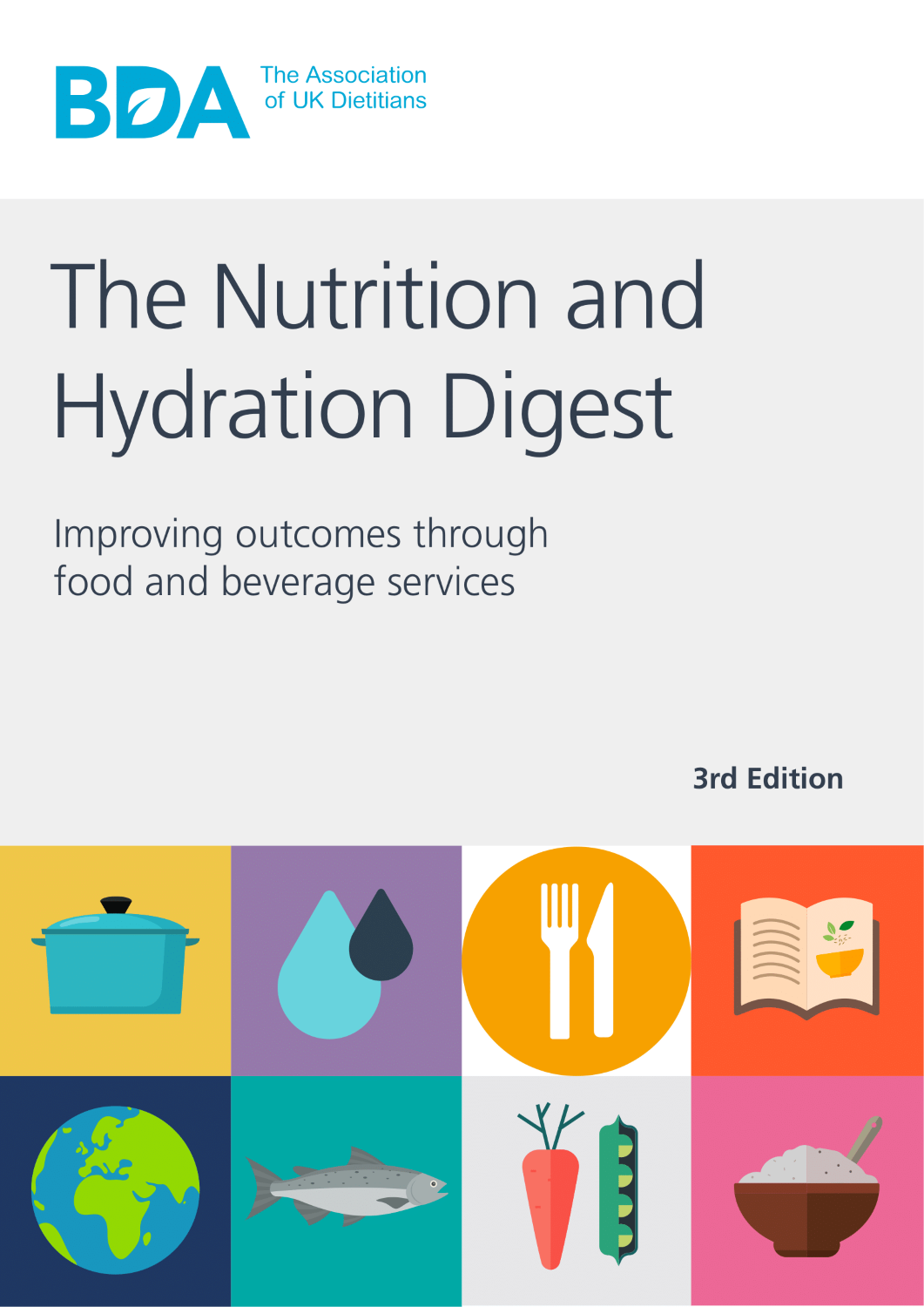The third edition of the British Dietetic Association’s Nutrition and Hydration Digest highlights the need for environmental sustainability and new protein targets for nutritionally vulnerable patients.
The British Dietetic Association (BDA) has today launched online the third edition of its Nutrition and Hydration Digest. The guidance is included in the 2022 National standards for healthcare food and drink, as one of the mandatory standards that NHS organisations must comply with.
The Digest is a document for everyone involved in patient care in a hospital. The new edition includes updated minimum protein targets for nutritionally vulnerable patients, alongside existing protein targets for nutritionally well patients and energy targets for all patients. It also includes the nutritional criteria for menu codes, guidance on catering for therapeutic diets and practical advice to plan compliant, nutritionally adequate menus.
The Digest was first developed in 2012 by a working group made up of the BDA's Food Services Specialist Group and Hospital Caterers Association members. Over the years, the document has gained support and added expertise from other BDA Specialist Groups.
Emily Stuart, a Registered Dietitian and member of the committee for the Food Services Specialist Group says, “The Nutrition and Hydration Digest contains the most up to date evidence when it comes to food service delivery and planning. It highlights considerations for everyone within a healthcare setting from nutritionally well patients, the nutritionally vulnerable as well as staff and visitors.
“The latest updates to the Digest reflect and are aligned with core information and guidance within other documents that are central to delivering high quality care across the NHS, as well as impacting the wider population’s health, the environment, and the economy.
“Our new chapter on environmental sustainability, for example, provides an overview of sustainability with reference to the NHS 2040 ‘Net Zero’ commitment. It also includes practical tips and guidance on how hospital food service departments can make impactful changes.”
The protein targets for nutritionally vulnerable patients have been updated and are a reflection on the latest evidence from the BDA’s Parenteral and Enteral Nutrition Group (PENG) guidelines. The new daily minimum protein target for a day’s standard provision in a hospital is based on meeting 1.2g protein/kg body weight. So, for a weight range of 66-77kg, the new increased protein target for hospital menus is 79-92g protein/day. This increased target has been supported by the new ‘higher protein’ menu code, which can be used to highlight higher protein options for patients on a hospital menu.
Liz Stockley, CEO of the BDA adds, “This document continues to be a critically important resource for everyone involved in delivering food and drink services within hospital settings. The inclusion of it within the national standards for healthcare food and drink, demonstrates the key role dietitians play, not only in patient care but also in impacting national standards and policy.”
Commenting on the Digest, Dame Prue Leith, Advisor to the 2022 Hospital Food Report has said, “If we want patients to leave hospital better fed, or as well-fed as when they came in, we need expert help on menus. Diet is an individual thing, taking account of a patient’s current health, their medical problems, their cultural or religious beliefs, their allergies and likes and dislikes. Hospitals need expert help from dietitians, and not least from the excellent British Dietetic Association’s updated Nutrition and Hydration Digest.”




